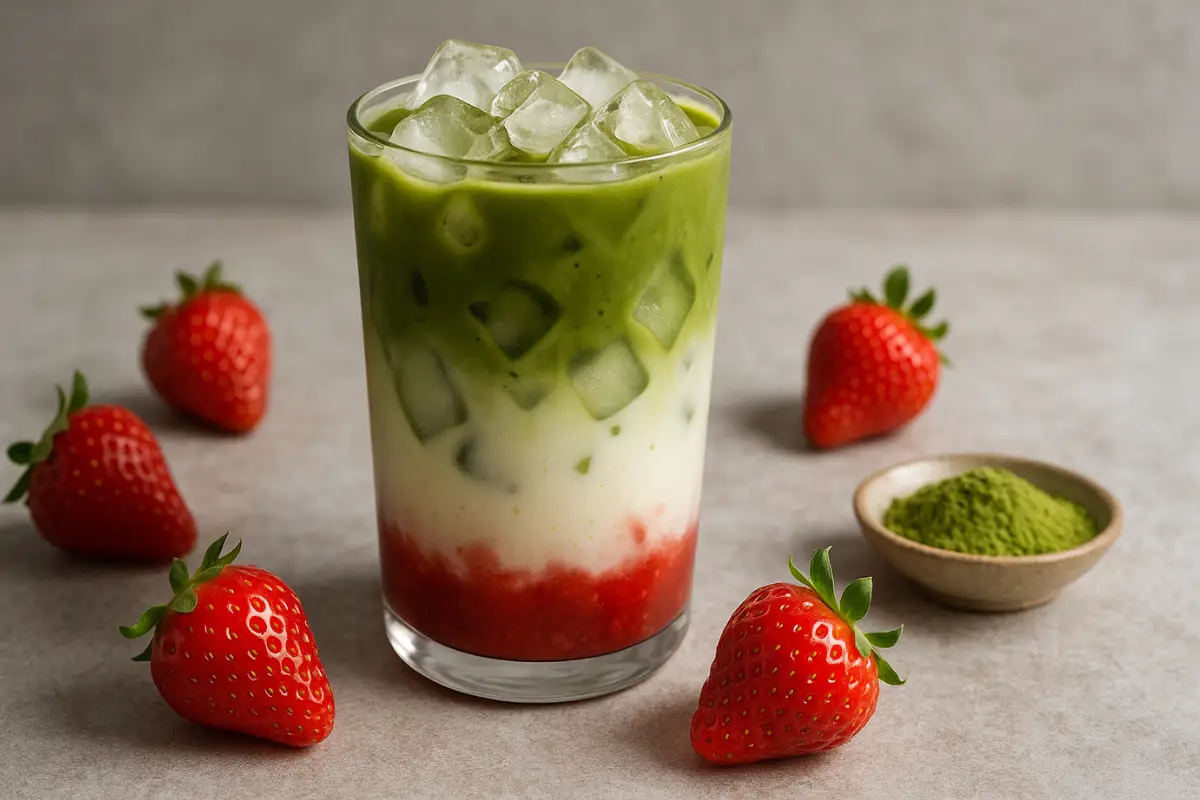Ever wondered why eggs are in the dairy aisle? This might lead you to think they’re dairy. But, eggs are not dairy. They’re often mistaken, especially for those on gluten-free or dairy-free diets. Let’s dive into the truth about eggs and their place in a diet without gluten and dairy.
We’ll look at what eggs are, what gluten and dairy are, and clear up some common myths. This guide aims to help you understand eggs better and how they fit into your dietary needs.
Table of contents
- Understanding Gluten and Dairy Intolerance
- What Are Gluten and Dairy
- Are Eggs Gluten and Dairy-Free?
- Common Myths About Eggs
- What Makes Eggs a Safe Choice?
- Eggs and Lactose Intolerance
- Shopping Tips for Gluten and Dairy-Free Diets
- Cooking with Eggs on a Special Diet
- Benefits of Including Eggs in Your Diet
- Potential Allergens and Reactions
- Conclusion
- FAQ
- Are eggs gluten-free?
- Do eggs contain lactose?
- Why are eggs found in the dairy aisle?
- Can I use eggs in gluten-free recipes?
- What are some common misconceptions about eggs?
- Are there any allergies related to eggs?
- What should I look for when shopping for eggs on a gluten-free or dairy-free diet?
- What nutritional benefits do eggs offer?
- What are some egg substitutes if I can’t consume eggs?
Understanding Gluten and Dairy Intolerance
Gluten intolerance includes celiac disease, wheat allergy, and non-celiac gluten sensitivity (NCGS). About 3 million Americans have celiac disease. It causes severe reactions to gluten, damaging the intestines.
On the other hand, 18 million Americans have NCGS. They experience symptoms like bloating and diarrhea. But they don’t have the autoimmune response of celiac disease.
Dairy intolerance is mainly about lactose, the sugar in milk. Without enough lactase enzyme, dairy digestion is hard. This leads to discomfort.
It’s known that about 65% of the world’s population has some lactose intolerance. This can really affect someone’s life. It makes them look for dairy-free milk options.
Because of this, dairy alternative sales have gone up by 61% in five years. This shows how many people are looking for healthier choices.
About 20% of people choose gluten-free and dairy-free diets for health reasons. These diets help manage symptoms and can reduce inflammation by up to 40%. This is good news for those with food intolerances or sensitivities.
Knowing about these intolerances is key to making better food choices. It helps us stay healthy and feel our best.
What Are Gluten and Dairy
Knowing about gluten and dairy is key for those with dietary limits. Gluten is a protein in grains like wheat, barley, and rye. It can cause problems for those with gluten sensitivity or related issues. Always check food labels for hidden gluten in processed foods and drinks.
Dairy comes from mammal milk, like cheese, yogurt, and ice cream. Most dairy is gluten-free, but flavored ones might have gluten. Be careful with “beer-washed” cheeses, as they might have gluten.
For a gluten-free diet, fresh fruits and veggies are usually safe. But, canned foods might have gluten, so always check labels. Fresh meats and fish are usually gluten-free if they don’t have added ingredients.
There are more gluten-free options available now. Brands offer gluten-free bread, snacks, cereals, and pasta. Reading labels carefully is crucial to avoid gluten in foods like modified food starch.
About 65 percent of people can’t digest lactose well after infancy. Knowing about gluten and dairy helps you make better food choices for your health.
For more information, see this guide on gluten-free deli meats.
Are Eggs Gluten and Dairy-Free?
Understanding if certain foods fit your diet is key. Eggs are special because they can be part of gluten-free and dairy-free diets. Knowing their classification helps ensure they’re safe for those with specific dietary needs.
The Nature of Eggs
Eggs are not like dairy products because they come from poultry, not mammary glands. This makes them a good choice for those avoiding gluten and dairy. Eggs gluten-free and eggs dairy-free are safe for people with sensitivities. They’re great in many dishes, from breakfast burritos to savory pancakes.
Gluten and Dairy: Definitions and Sources
It’s important to know what gluten and dairy are, especially if you have food allergies. Gluten is in wheat, barley, and rye, while dairy comes from mammal milk. Eggs don’t come from these sources, so they’re safe for those avoiding gluten and dairy.
Common Myths About Eggs
Many people believe wrong things about eggs, leading to myths. One big myth is thinking eggs are related to dairy because they’re in the dairy aisle. But eggs come from birds, not mammals, so they’re not connected to milk.
It’s important to know the truth about egg classification to clear up these myths.
Eggs Found in the Dairy Aisle
Seeing eggs next to dairy in stores can confuse people. Eggs don’t come from mammals like cows, so they’re not like milk or cheese. This mix-up leads to myths about eggs that make it hard to eat healthy.
Clarifying Misconceptions
Media often shows eggs with cheese and yogurt, making things worse. But knowing the real egg classification can help fix these mistakes. You can use eggs in many recipes without losing flavor or nutrition. Check out here for some ideas.
What Makes Eggs a Safe Choice?
Eggs are packed with nutrients that boost your health. They have proteins, healthy fats, vitamins, and minerals. This makes them a great choice for a balanced diet.
Nutritional Benefits of Eggs
Eggs are full of health benefits. A medium egg has about 7g of protein, which is key for muscles. They also have few calories, with a boiled egg having about 72 kcal.
Eggs support healthy body functions and brain health. They give you energy that lasts. Adding eggs to your meals is a smart move.
How Eggs Fit into a Gluten-Free Diet
If you’re on a gluten-free diet, eggs are a good choice. They don’t have gluten, so they’re safe and versatile. You can make many dishes with eggs, like scrambled eggs or frittatas.
Eggs are a reliable source of nutrition. They don’t have the risks of gluten-containing foods.
Eggs and Lactose Intolerance
For those with lactose intolerance, eggs are a safe and nutritious choice. Since eggs and lactose don’t mix, they won’t trigger symptoms. This makes eggs a great alternative to dairy products.
Lactose intolerance can cause stomach cramps and nausea. But eggs offer a way to get protein without these issues. They are also versatile and can make meals more tasty and nutritious.
Choosing eggs as a protein source is good for those with lactose intolerance. It also works well for a gluten-free diet. Eggs allow for delicious meals without the discomfort of lactose intolerance.
Shopping Tips for Gluten and Dairy-Free Diets
Shopping for gluten-free and dairy-free foods requires knowing how to read labels. This is key to staying safe and meeting your dietary needs. Many foods have hidden ingredients that can harm your health. Learning about certifications and labels is crucial.
Label Reading for Safety
Always check food labels carefully. Look for the “Certified Gluten-Free” label. It means the product has less than 20 parts per million of gluten, safe for those with celiac disease. Keeping a food journal helps track meals and how your body reacts, showing any symptoms from diet changes.
- Check for common allergens in ingredients
- Identify gluten-free grains and flours that suit your needs
- Look for dairy alternatives such as almond milk or coconut milk
- Assess what sweeteners are used; opt for honey or pure maple syrup in dairy-free recipes
Identifying Safe Egg Products
When picking egg products, choose brands that say they are gluten-free and lactose-free. Brands like JUST are great for breakfast, especially for those avoiding regular eggs. Adding protein with Zego Double Protein Oats in Overnight Oats is a great gluten-free and dairy-free breakfast.
Planning ahead makes shopping easier. Having frozen, pre-made foods can help on busy mornings. Understanding food labels helps you meet your dietary needs, making meals enjoyable and healthy.
Cooking with Eggs on a Special Diet
Cooking gluten-free can be fun and rewarding, especially with eggs. Eggs add moisture, flavor, and nutrients to meals. They are great for those looking for gluten-free options. If you need to replace eggs, there are many good substitutes that keep the taste and texture the same.
Simple Recipes Incorporating Eggs
Here are some tasty egg recipes for special diets:
- Gluten- and Dairy-Free Cinnamon Raisin Bread: This moist bread has 295 calories per serving and takes 70 minutes to make. It’s perfect for breakfast or snacks.
- Lemon Rice Salad: This fresh salad is ready in 25 minutes. It’s full of nutrients and has 247 calories per serving.
- Cherry Tomato Salad: This salad is quick, taking just 15 minutes. It’s low in calories, with only 103 calories per serving.
- Green Salad with Shrimp and Wine Vinaigrette: This salad takes 80 minutes to prepare. It has 277 calories and is very filling.
- Pickled Beet Salad: This unique salad takes 90 minutes to make. It has 116 calories per serving and adds flavor to any meal.
Substitutions and Swaps for Eggs
Looking for egg substitutes? Here are some good options:
- Flaxseed Meal: Mix one tablespoon with three tablespoons of water. Let it sit until it thickens. It’s great for binding in baking.
- Chia Seeds: Similar to flaxseed, mix one tablespoon with three tablespoons of water. It’s a good egg substitute.
- Silken Tofu: Blend a quarter cup for a smooth texture. It’s perfect for adding moisture to recipes.
- Applesauce: Use a quarter cup as a substitute for one egg. It works well in sweet recipes.
- Aquafaba: The liquid from canned chickpeas can replace egg whites. Three tablespoons equal one egg white.
Benefits of Including Eggs in Your Diet
Eggs are packed with egg health benefits that make them a favorite in many diets. A large egg has about 70 calories, 6 grams of protein, and 5 grams of fat. They are a top-notch source of quality nutrition.
The protein in eggs is very easy for your body to use. This helps keep your muscles strong and repairs them when needed. It’s key for staying healthy.
Eggs are full of nutrients like choline, which is good for your brain. One egg gives you about 6% of your daily choline needs. They also have amino acids that help your skin, hair, and nails.
Eggs are also a good source of B vitamins like B2, B5, and B12. These vitamins are great for your skin and hair.
Moreover, eggs have vitamin D, which is good for your bones and may help with blood pressure and cancer risks. Eating eggs every day can give you about 6% of the vitamin D you need. Research shows that eggs can also help your heart stay healthy.
- Eggs have antioxidants like lutein and zeaxanthin, which are good for your eyes and may prevent age-related eye diseases.
- Eating eggs in moderation can help you feel full and manage your weight.
- Eggs are a cheap, sustainable way to get high-quality protein compared to other animal products.
Eggs are great because they can be used in many different dishes. They’re a fantastic choice for adding balance to your meals and enjoying their many egg health benefits.
Potential Allergens and Reactions
Egg allergies have become more common, especially in kids. About 2–6% of young children have this allergy. Symptoms can range from skin issues to breathing problems and stomach troubles.
For those with egg allergies, it’s important to avoid eggs and products made from them. This helps prevent serious health issues.
Studies show that the immune system, mostly found in the gut, might help prevent food allergies. Early exposure to foods like eggs could lower allergy risks later. But, introducing foods again after avoiding them can cause unexpected reactions.
Tests for egg allergies, like skin-prick tests, are only about 50-60% accurate. Many people also confuse food allergies with intolerances. Tests for sensitivities are not as reliable. Knowing this can help you make better food choices.
In the U.S., food allergies affect about 33 million people. Common allergens include nuts, shellfish, dairy, and eggs. Around 68% of kids with egg allergies grow out of it by age 16. Still, it’s important to watch what you eat if you have allergies to stay safe and healthy.
Conclusion
Eggs are both gluten and dairy-free, making them safe for those with certain dietary issues. Knowing about gluten and dairy helps you make better food choices. Eggs are also very versatile, fitting well into many different meals.
Eggs are packed with nutrients and may even help your health. They’re great for baking or simple dishes. Knowing they’re gluten and dairy-free can make cooking easier, especially if you follow special diets.
Adding eggs to your diet can be good for your health and taste buds. They offer tasty options that fit with gluten-free and dairy-free eating. Let eggs help make your meals better and support your health goals.
FAQ
Are eggs gluten-free?
Yes, eggs are gluten-free. They don’t have gluten proteins. This makes them safe for people with gluten intolerance or celiac disease.
Do eggs contain lactose?
No, eggs don’t have lactose. Lactose is the sugar in dairy. So, eggs are okay for those who can’t digest lactose.
Why are eggs found in the dairy aisle?
Eggs are sometimes in the dairy aisle, which can be confusing. But, they’re actually poultry products. They’re not made from milk, so they’re not dairy.
Can I use eggs in gluten-free recipes?
Absolutely! Eggs are great for gluten-free dishes. They help bind ingredients and add flavor.
What are some common misconceptions about eggs?
Many people think eggs are dairy because they’re in the dairy aisle. But, eggs are not dairy. Knowing this can help you make better food choices.
Are there any allergies related to eggs?
Yes, some people have an egg allergy. This can cause skin issues, breathing problems, or stomach problems. If you have an egg allergy, avoid eggs and products made from them.
What should I look for when shopping for eggs on a gluten-free or dairy-free diet?
Always check the labels for eggs. Make sure they don’t have gluten or dairy. Choose brands that say they’re gluten-free and dairy-free.
What nutritional benefits do eggs offer?
Eggs are full of high-quality protein and essential fatty acids. They also have vitamins like B12 and riboflavin. These nutrients support eye health and are good for your diet.
What are some egg substitutes if I can’t consume eggs?
If you can’t have eggs, try flaxseed meal or silken tofu. They can replace eggs in recipes. This helps you stick to your dietary needs.





